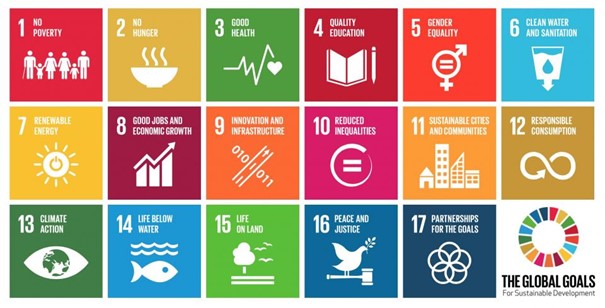Sustainability in energy purchasing – more than just green electricity
In the current focus on sustainability, there are a variety of possible approaches and the corporate strategy to be climate neutral by the year 20XX is currently not only heard in advertising. In many cases, salespeople of their own company are already exposed to the demands of customer buyers in their annual or negotiation meetings that the climate goals and measures of their own company play a decisive role within the framework of the business relationship and the evaluation of the offer. This demand of the customers is then passed on in the own enterprise to the purchase departments with the demand nevertheless please times which to undertake.
The obvious conversion knows each buyer also from the domestic use and is today in Germany also nearly cost-neutral. „We made the conscious decision 2 years ago to switch our entire electricity supply for all 20 properties to sustainably produced electricity, so-called green electricity, and it cost us less than one percent on the net energy price. Through further optimizations, we were even able to neutralize this investment again.“ A purchasing manager from the service sector was pleased. This step makes sense, but it is also only a first step.
Basically, the CO² balance of a company that wants to present corresponding reports should be viewed in a more differentiated way. Depending on the possibilities of influence and impact, a distinction could be made here, and it would still be possible to maintain an overview. On the company-owned buildings and vehicles one has a direct influence and it has a direct effect on the CO² output of the own enterprise. If one looks not only at electricity, as in the previous example, but also at all other types of energy that are needed in a company, such as the purchase of gas, district heating or heating oil, there is a significant change in the CO² assessment of the energy consumed, which now indirectly flows into the CO² balance of the reporting company. In addition, there are also a large number of other products and services that are purchased and transported to the company’s own premises. These are then processed, transported further and at some point even have to be disposed of. In addition, other indirect factors such as business trips, employee mobility, rented properties, investments and financial assets also have a significant impact on the evaluation of a company’s own carbon footprint. So simply buying green electricity is really just a start. To illustrate with a well-known overview:

Long way in Scope 1
When it comes to optimizing the energy use of buildings and vehicles, it is seldom possible to implement the quick and cost-effective way. Neither does one have the expertise in-house on the one hand, nor are these almost cost-neutral as in green electricity, and in some cases there are still no sustainable proven solutions on the market or current contract terms, such as the classic vehicle leasing of 36 months, prevent short-term implementation.
Here, a CO² offset can be an effective means on the fast path to climate neutrality. An example of a sensible compensation measure are so-called climate certificates / CO² certificates. More often, CO2 compensation is easier and cheaper to implement than other efficiency measures.
Climate projects in other countries are promoted by the climate certificates. The CO² which is saved by this, can often not be achieved by a company itself due to financial or structural conditions.
In the case of climate certificates, attention should be paid to the Gold Standard. This standard was established in 2003 by WWF and other international NGOs as a best practice standard to ensure that projects that reduce CO² emissions under the United Nations Clean Development Mechanism (CDM) are also implemented under the dual mandate to promote sustainable development.
17 Sustainable Development Goals
The UN’s 17 goals cover the three dimensions of sustainability: social, environmental and economic. These UN Sustainable Development Goals aim to eradicate poverty and social inequality by 2030, for example, and ensure access to sustainable energy for all. The 17 goals can be a model for sustainability in your company.

Support from professionals
With first energy GmbH, the buyer’s heart beats faster: Saving money and at the same time sustainably positioned. You get better energy purchasing conditions, more energy efficiency and ultimately more time, because first energy also takes care of the administration. For more than 20 years as a service provider on the market nationwide for customers active, the first energy can fall back on a large wealth of experience and find pragmatic solutions for each industry. Numerous customers pay less energy costs through us and advertise with a better corporate image.
Whether it’s certified energy or environmental management, professional energy purchasing, savings through EEG reductions or electricity tax refunds, or the path to a sustainable or „climate-neutral company“ – first energy is the contact of choice because first energy works transparently and closely with its customers and is legally on the safe side.
Through targeted measures, consumption can be reduced and, in addition, refunds and subsidies can be used.
As a team, first energy and Adconia cover climate assessment through Scopes 1 to 3 and work together to help our clients achieve their climate neutrality and sustainability goals. No matter if it requires a revision of the CSR strategy, the presentation and development of a carbon footprint and climate neutrality as well as measures for environmental management and the development of a sustainability report, with the team of Adconia and First Energy you have competent contact persons for your questions.
Rainer den Ouden
Partner. ADCONIA GmbH
Markus Barella
Managing Director first energy GmbH
![]()
Source Image GHG Report, United Nations



